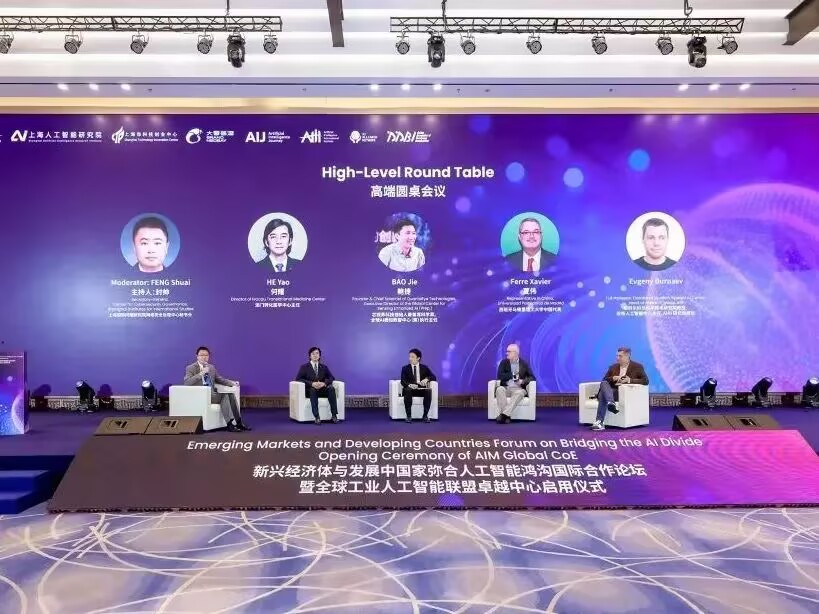 UN Officials, Country Leaders Attend Forum on Global AI Divide at WAIC in Shanghai
UN Officials, Country Leaders Attend Forum on Global AI Divide at WAIC in Shanghai(Yicai) July 29 -- Over 300 participants from more than 20 countries and regions, including United Nations officials and representatives from universities, governments, and enterprises, attended a forum to discuss the growing artificial intelligence gap between developed and emerging economies during the World AI Conference.
The Emerging Markets and Developing Countries Forum on Bridging the AI Divide was held in Shanghai's Minhang district on July 27 in conjunction with the opening ceremony of the Center for Excellence under the UN Industrial Development Organization's Global Alliance on AI for Industry and Manufacturing, better known as AIM Global.
Several deals were signed at the forum, including a mutual recognition mechanism agreement between AIM Global and the BRICS+ AI alliance network and deals between the Shanghai Artificial Intelligence Research Institute and educational partners to create international AI education labs as part of China's national AI-empowered education strategy.
"All of Africa has just less than 1 percent of the world's data center capacity and less than 1,000 graphic processing units to train AI models," Amandeep Singh Gill, UN under-secretary-general for digital and emerging technology, said at the forum. "AI is about augmentation of human capacity, it is not about replacement," he noted, warning against creating technological "haves and have-nots."
Malaysia's Digital Minister Gobind Singh Deo underscored the economic stakes for emerging markets.
The Association of Southeast Asian Nations has a population of 700 million, so it could leverage up to USD2 trillion in economic potential by 2030 if it can fully utilize AI, he noted. "Conversely, if we don't adopt AI, we're looking at potentially losing nearly USD1 trillion in economic opportunity."
Deo cited Malaysia's digital infrastructure strategy, explaining that the country is "looking at energy, water, and fast-tracking applications so data centers can actually be built quickly."
Uzbekistan is working on data centers worth almost USD8.5 billion, said Abdulakhad Kuchkarov, chief executive officer of technology hub IT Park Uzbekistan.
The national AI strategy formulated last year focuses on building ethical and future-oriented AI regulation for economic transformation across sectors like healthcare, agriculture, education, and transport, Kuchkarov noted
He also shared Uzbekistan's progress in AI. Seven years ago, IT Park had only 150 companies, but now, the number has risen to nearly 3,000, over 800 of which are foreign firms.
"International standards can serve as tools for scaling, designing, and deploying AI technology reasonably, helping create a level playing field, so that no one gets left behind," said Sung Hwan Cho, president of the International Organization for Standardization, or ISO. "The benefits of AI must be shared by all, not just by those developing the technology."
Editor: Futura Costaglione